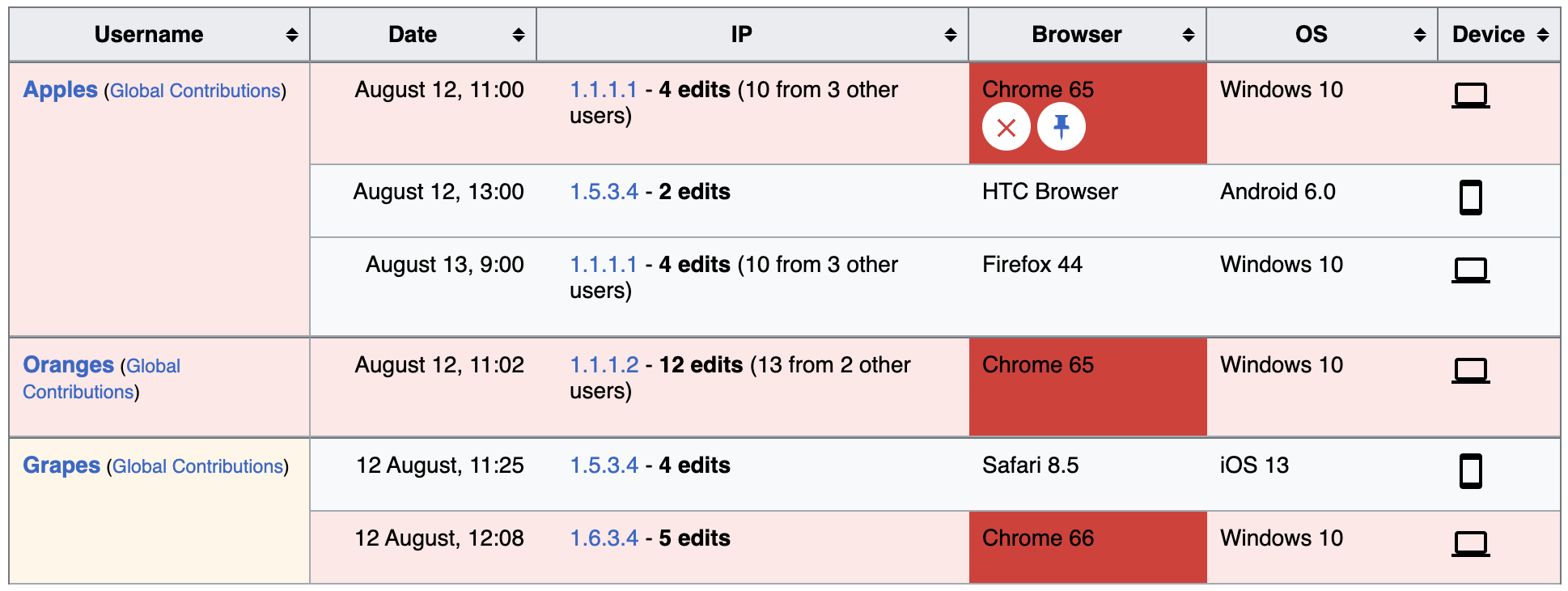Split from T240530: CU 2.0: Filtering from the data table in Compare tab. See T240530#6011630 for more context.
Goal
In the table or lists of results on the CU special page, the user should be able to filter out data using the delete icon that shows up when they hover over a cell.
Mock
https://prtksxna.github.io/wmf-cu-prototype/compare.html (hover over Chrome 65 in the first row)
| Unhighlighted row |
|---|
| Hovering over row |
| Hovering over remove icon (highlights the rows that'll get removed in red) |
Acceptance criteria:
- Requisite filters:
- Filter out user-agent
- After the user clicks the cross button, the exact user-agent is added to the filters widget
- Filters persist across pagination
- When a new filter is added by clicking the icon, pagination returns to the first page of results.
- Clicking is a submission of the filter and will refresh the page.
Note
- After the results are reloaded, preserve state of filter box - open or closed as before.
- The button will only appear on targets that can be filtered out. Some IPs/usernames will not be filterable until T247281: The target filter on Special:Investigate should be more fuzzy [medium] is complete.



